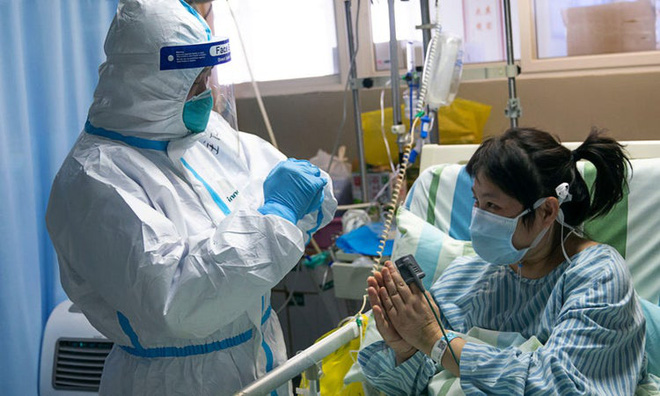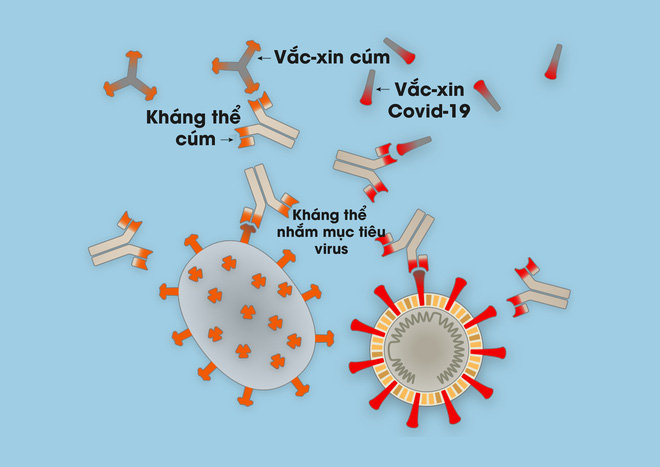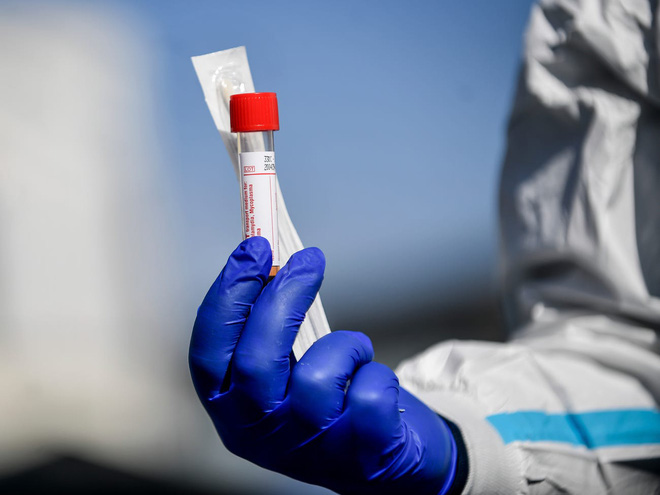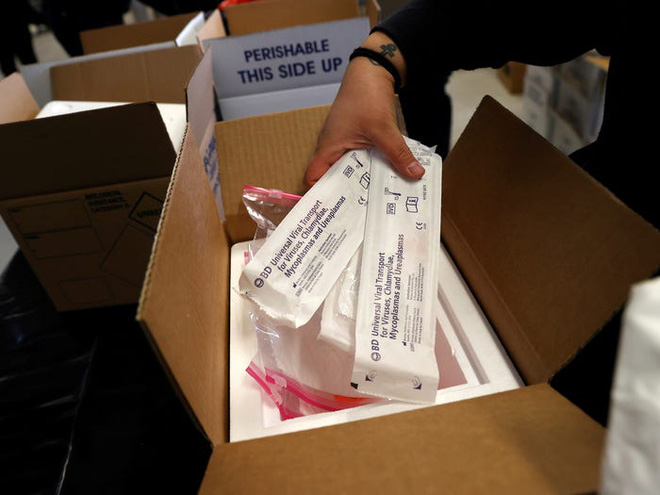How are scientists knowing whether the Covid-19 patients recover and become infected again?
SARS-CoV-2 is an entirely new strain of corona virus. That means there are still many mysteries we don't know about this virus, as well as the Covid-19 acute respiratory infection.
An important question remaining at this time is: Will the recovered patients be reinfected? Can they be discharged after having a negative test? And if so, is there a risk of spreading it to others?
"We don't know much about it, " Matt Frieman, a researcher at Maryland Medical University in Baltimore, told NPR.
"I think there is a very likely scenario, that the disease will pass this year, and everyone will have a certain level of immunity to it. Then if the virus comes back once." Also, we will be protected.
Either we are completely immune, or if you are reinfected at one year from now, the disease will be much less severe . "

Now, scientists are still trying to answer this question. Because it plays a crucial role in deciding whether or not Covid-19 patients should recover from hospital or continue to isolate them?
Immune to corona virus
The first time your body encounters a new corona virus, it has no immunity. In order to have immunity to a new pathogen, your body has to develop antibodies - proteins against a specific antigen.
In most cases, once your body has acquired antibodies and learned how to fight a specific foreign pathogen, you will not be able to get sick again. That's why a person who has had chickenpox or vaccines against it will not be able to get the disease again.
In the remaining rare cases, you will be re-infected with a virus when it mutates to get rid of antibodies that the immune system has equipped. For example, with the seasonal flu virus, it mutates very quickly year by year, and that's why we need to be re-vaccinated before every new flu season.
In addition, some antibodies tend to weaken over time. And that may also be the reason why you are re-infected with an old disease.
In the case of the new corona virus, the report showed that a tour guide in Japan recovered from Covid-19 infection, but after 3 weeks, the patient tested positive for it again. .
Doctors are not sure whether it is a reinfection phenomenon or if the girl has not fully recovered from the first infection. Or maybe one of these tests has an error.
During sample collection, sample transport, individual testing and error of the test machine may still produce false or false positive results.

Vaccines and the immune system work together on antibodies to prevent viruses.
A study by Chinese scientists showed that SARS-infected nurses and doctors in 2002 built an immune system, with antibody levels peaking in 2004. But then, The antibody gradually decreased until they finished the study in 2015.
The " antibodies have neutralizing activity and protect against infection ," the researchers wrote. Their presence and presence in the blood is evidence that these recovered patients have some immunity to SARS.
However, scientists are not sure if it is a " complete protection" , meaning that it is unlikely that these patients will be reinfected if they encounter the SARS virus years after they recover.
The SARS-CoV-2 virus now shares 79.5% of its genetic code with the SARS strain of 2002 (SARS is also a corona virus). Therefore, it is likely that their antibodies will function similarly.
In another study, scientists took the initiative to infect the cores macaque monkeys of the corona virus, letting them recover, then tried to re-infect them again. As a result, the first virus infection caused the monkeys to be mildly ill, they lost weight and pneumonia.
However, on the second infection, there did not seem to be any more infected monkeys. That sounds good, but the research is currently being posted on MedRx and hasn't been reviewed yet.
An antibody test can tell you if you have been infected with Covid-19
If people recovering from Covid-19 are immune to the disease, then it is more important to know who has the virus and who has not.
According to a study from the China Centers for Disease Control and Prevention (CCDC), about 1% of new corona virus infections have no symptoms. But many experts think this may be even higher, because people with asymptomatic or very mild virus infections are often not tested and reported.
Blood tests that detect antibodies to the new corona virus can tell people if they've been infected before - even after they've recovered and even if they never show symptoms.
This antibody test is different from the Covid-19 diagnostic tests currently in use. The current Covid-19 tests are aimed at confirming a disease that exists in a person's body, while an antibody test will confirm whether someone is recovering or has recovered from a virus.


A Covid-19 test kit container in New Rochelle, New York.
Therefore, antibody testing will be especially helpful for people who want to ask themselves whether they are safe, whether they should be isolated or can go out while one third of the world is blockade or restrict travel.
However, the implementation of antibody test kits must be taken seriously, under the control of specialized agencies. This is to prevent some individuals or entities from taking advantage of community anxiety to sell fake test kits for self-seeking.
" In the end, this (antibody test) can help us figure out who can bring the country back to normal ," Florian Krammer, a professor at Mount Sinai School of Medicine, Icahn told Reuters. " People who are immune to the disease may be the first to return to normal life and restart everything."
University laboratories and medical companies are rushing to produce antibody tests in the blood. And the U.S. Food and Drug Administration (FDA) has loosened its rules to allow such tests to be available faster.
You should read it
- ★ He is developing the world's fastest and most accurate Covid-19 test, which takes only 30 minutes and has no false results.
- ★ More than 540 studies, 80 clinical trials and 200 viral genomes: The scientific system is working at full capacity in the Covid-19 epidemic.
- ★ The Math behind Covid-19 Translation: Why is it necessary to keep social distance, avoid gathering?
- ★ How to disinfect clothes at home to prevent the Covid-19 epidemic
- ★ Experts answer: can Covid-19 pathogens get into clothing, shoes when on the road?